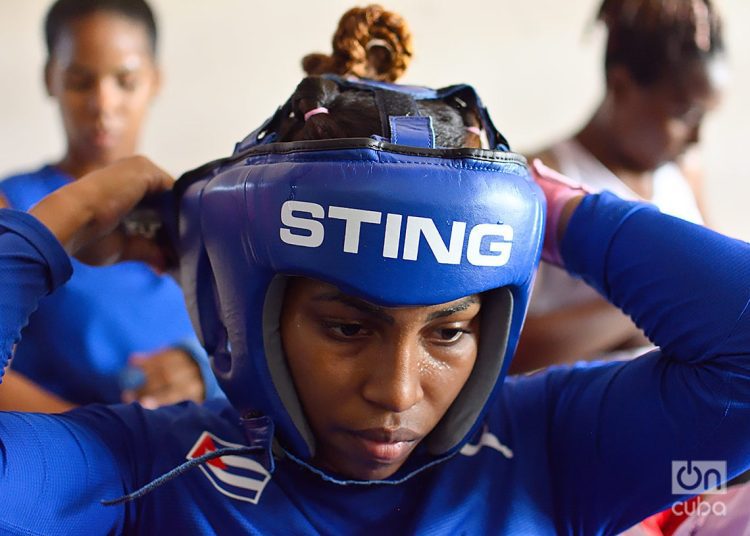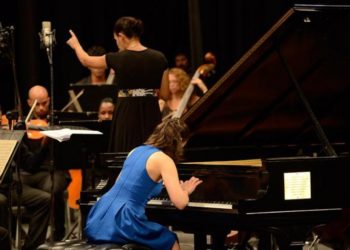Since long before launching its first official punches, just a few months ago, Cuban women’s boxing has faced an unfair and unequal fight. His has been a fight against time and misunderstanding, a fight that kept it on the ropes for many years, but in which it is now finally beginning to smile.
Unlike the men, who have left a golden trail in the ring and have won numerous titles as amateurs and professionals, Cuban women boxers had to remain in the shadows for years. As happened at their time with other sports, such as wrestling or weightlifting, prejudice and intransigence cut short its chances of officially competing in Cuba time and again.
This, despite the fact that women’s boxing has had fights and recognition internationally for some time, and that on the island itself there were practitioners and also precursors of the discipline, such as Silvia Hernández and Felicia Mesa, “La pantera sagüera,” bitter rivals on the ring before 1959.
Although on more than one occasion the Cuban authorities claimed to be “studying” the issue, for a long time they refused to budge. Thus, the possibilities repeatedly vanished for women boxers to participate in international events and fight for medals in the World Cups, Central American, Pan American and Olympic Games, where women’s boxing had been official since London 2012.
If at first the Cuban Boxing Federation (FCB) was opposed to following in the footsteps of world sport because it considered that this modality was “inappropriate” for women, in the following years it opened the door to its possible acceptance due to the growing requests from inside and outside the country, including that of the president of the then Amateur International Boxing Association (AIBA), Ching-Kuo Wu.
However, the delay in approving its practice remained, and the arguments for doing so, too.
“We are reviewing, we have great admiration for our women, for their beauty, and today we do not place them with boxing gloves, competing with other women,” the president of the FCB, Alberto Puig de la Barca, commented in 2013.
“We have seen the pros and cons, it is a subject that is being studied, there has not been a decision. We will see in the coming years what decision we will make,” Puig himself told ESPN in 2015. However, already then he considered that there was “raw material” for when the step was taken and that there were women boxers with “possibilities of transcending.”
Meanwhile the years go by
Despite the fact that the Cuban authorities refused to authorize women’s boxing once and for all, several women did not hang up their gloves and kept alive the hope of competing officially. They did it by force of will and sacrifice, overcoming many difficulties and shortcomings, misunderstandings and prejudices, and without the certainty that their wish could be fulfilled.
For some, the definitive approval of the boxing practice among the girls, last December, caught them still able to get into the ring and fight for their goals. For others, unfortunately, it was not so.
The best known case is that of Namibia Flores. The protagonist of a story of perseverance and frustration, the support of the National Institute of Sports, Physical Education and Recreation (INDER) came a decade late. At 46 years old, she can no longer officially fight for Cuba, as she always wanted. Nor, at least for the moment, has she been able to join as a coach.
Namibia saw her Olympic dream come crashing down not once, but twice. First, at the debut of her discipline in London 2012, when the island’s authorities did not even consider the possibility, and then in Rio 2016, when she had hopes until the last moment, but finally the Cuban Federation declined again. She was then 40 years old, the age limit to participate in games under the five rings.
Along the way, she lost her faith and recovered it, overcame a thousand adversities, was the center for documentaries and feature articles, sparred with women boxers from other nations and with men, inspired other girls, tried it as a professional outside the island and refused to represent another country, including the United States. She just wanted to get in the ring for Cuba.
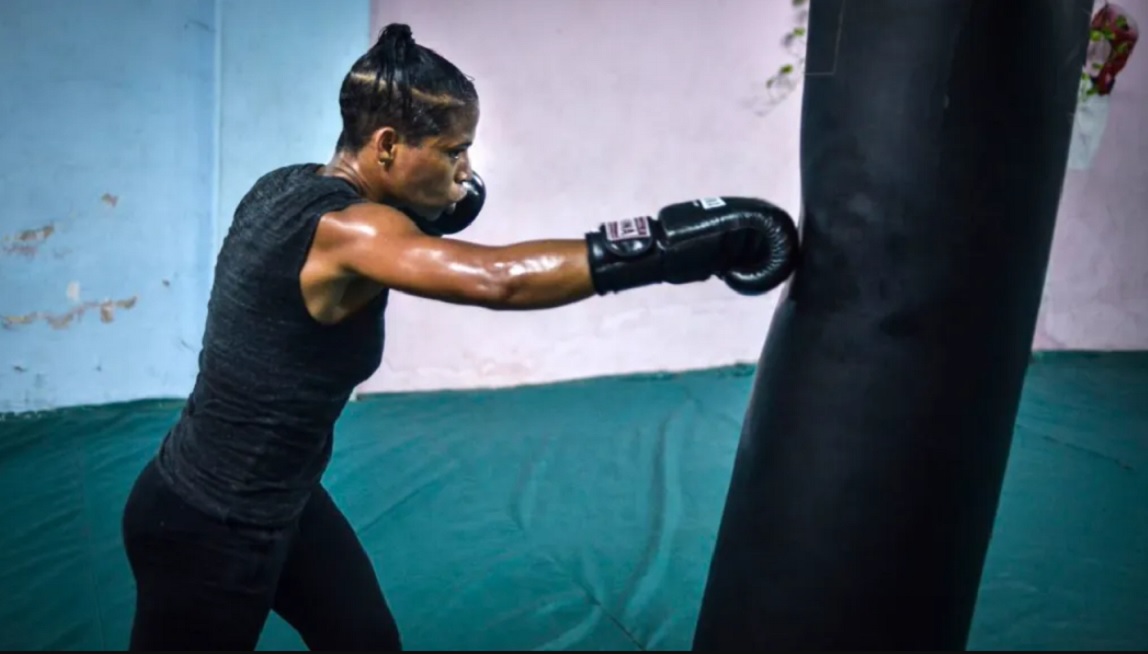
“It is a bittersweet moment,” Namibia acknowledged about the official authorization of women’s boxing in the country. “I am very happy that it happened, of course. But at the same time, a little sad. I hoped that it would be my fists, my gloves that would bring victory to Cuba,” she commented to the BBC after hearing the news.
Like her, many women — and men — celebrated the approval of this sport, even with mixed feelings. But also other men and women continue to show their misgivings. Stereotypes and prejudices such as that “boxing is not feminine” still hinder its acceptance and promotion in a society with strong macho roots, although, fortunately, there increasingly more voices in support.
Before the first round
Before women’s boxing was approved by the island’s authorities, not only the girls themselves, fans and journalists had defended its practice in Cuba. Also seasoned experts and coaches such as Rolando Acebal, technical head of the men’s squad, and the legendary teacher Alcides Sagarra, had supported it.
“I support the girls’ entry; it is a right. Just as they get on a tractor or plane, just as they take a rifle, I think they also have the right to boxing,” Acebal commented to OnCuba in 2019, aware that without women, boxing and Cuban sports in general was at a disadvantage compared to the rest of the world.
To have an idea, if the girls fought in three divisions in their Olympic debut in the British capital, they already fought in five in Tokyo 2020, and in the nearby Paris Games, next year, they will do so in six by seven men’s.
Along this same line, Sagarra expressed himself. “It is time to finish approving it,” he told Cubadebate in 2021. “We have lost time, medals and the satisfaction of teaching them to fight. I hope to get to see them in the ring,” added the greatest architect of the Cuban school. Fortunately, at 87 years old, he has been able to see his wish come true.
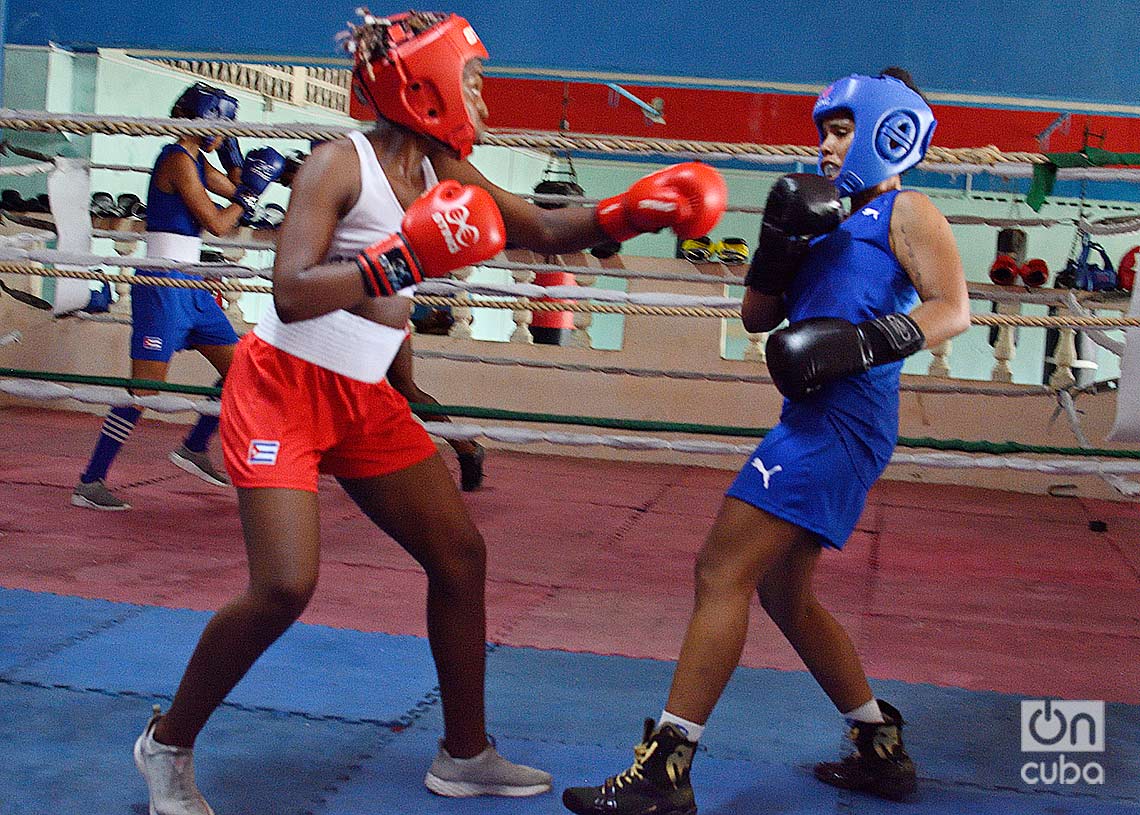
On December 5, INDER and the Cuban government finally gave the green light to women’s boxing, after years of delays and reluctance. Then, it was explained that this was the result of “coordinated actions with other organizations and institutions in the country, including the Federation of Cuban Women (FMC), which endorsed the proposal.”
The decision, the officials said, was based on an “in-depth study” to ensure that the girls were not running “any risk” when boxing, and that the practice is “in correspondence” with the current Magna Carta, the National Program for the Advancement of Women — promoted by the Executive of Miguel Díaz-Canel and the FMC — and the new Family Code.
In addition to outlining the schedule for the selection of athletes for the national team and preparation for the first competitions, they announced the opening of the discipline at the base in 2023, both in the community sports teams and in the Sports Initiation Schools (EIDE) where, they said, it would have “prioritized attention.”
Similarly, they confirmed that the necessary means of protection for the preselected women were already in place, not only for the mouth and head, but also for the genitals and breasts, and that a certificate of non-pregnancy was required before the events. And, quite naturally, they overturned one of the main arguments that fueled prejudice and had hitherto held back making official women’s boxing on the island.
“Without wanting to compare, there are official combat sports in the country that are more traumatic than boxing,” Ariel Saínz, vice president of INDER, told the press. For his part, Puig de la Barca noted that in the last World Championship there had been no injury, knockout or RSC (referee stops combat) among the women.
With this they told those who had been pointing out the same thing for a long time that they were right. To go no further, two years earlier Acebal had told Juventud Rebelde newspaper that in the countries that practiced this modality “no harm to the health of the athletes has been seen.” “If it had been otherwise, it would have been detected and everything would have ended,” he said.
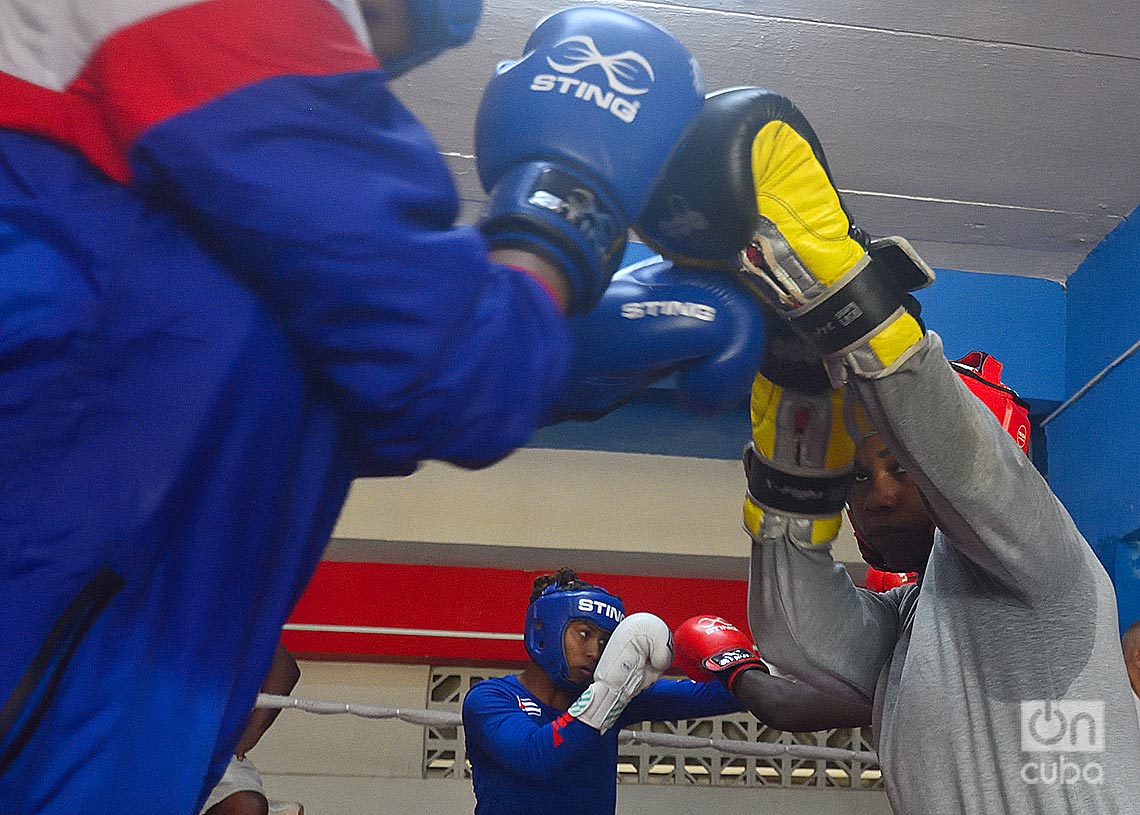
The first and the next fights
After it was made official, Cuban women’s boxing would begin a new race against time. Its approval came just months before the Central American and Caribbean Games in San Salvador and less than a year before the Pan American Games in Santiago de Chile. The Paris 2024 Olympic Games are also on the near horizon.
A bout held in mid-December was the meter to select the first 12 boxers for the national team, two in each of the six divisions scheduled for the main competitions (50, 54, 57, 60, 66 and 75 kilograms).
With them, the technical group headed by Santiago Suárez then began intensive work. The Giraldo Córdova Cardín High Performance Athlete Training School, east of Havana, would become the team’s headquarters, and a gym in the nearby Pan-American Stadium, its headquarters, although shared with the junior men’s team.
The objective of the coaches was — and still is — to polish the technical-tactical difficulties of the girls, most of whom come from other sports such as taekwondo, karate, wrestling and athletics. Also, forming a competitive squad practically against the clock that, even without athletes who had fought before officially, could stand up for themselves in the ring and win some medals for Cuba.
And they achieved it.
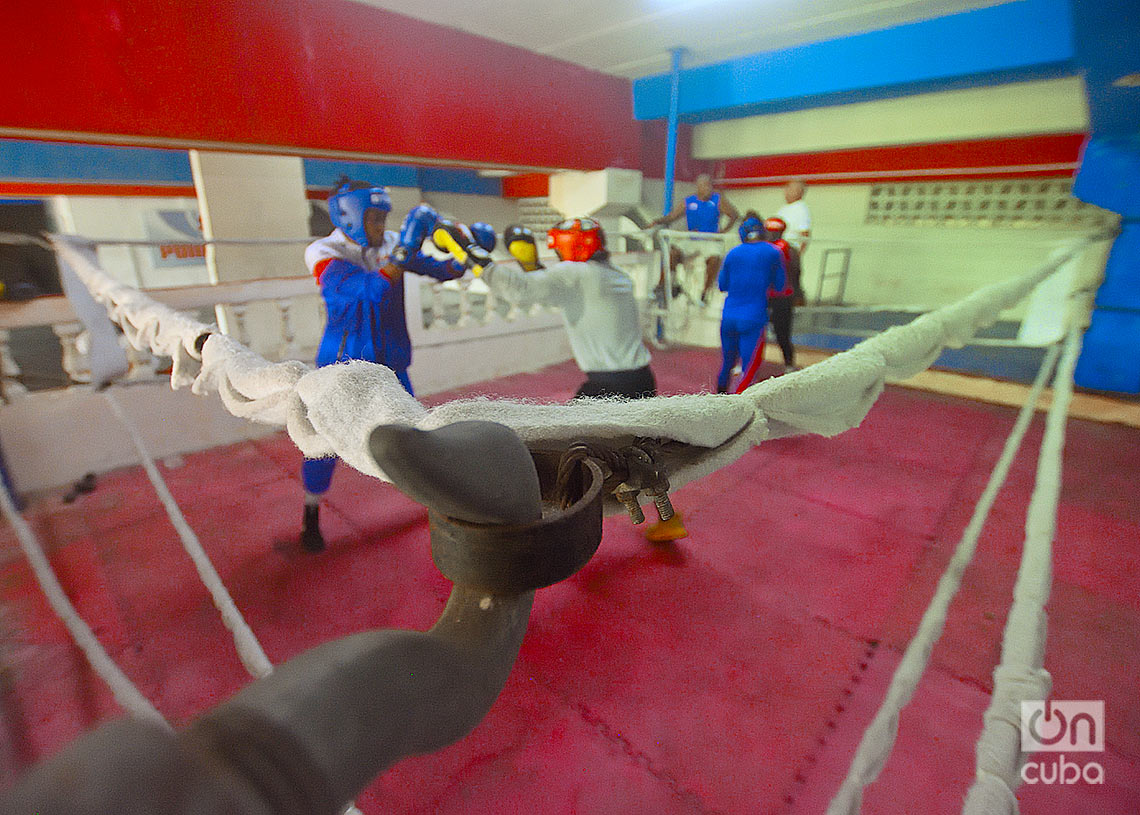
In their first international experience, at the end of April at the ALBA Games, the Cubans not only celebrated their first victory in a tournament outside the island, but also stood on the podium for the first time. The six attending girls got the bronze, although due to the draw and the number of competitors it was not necessary for all of them to have a victory to achieve it. Even so, it was a fundamental experience for the next challenge.
In this regard, Santiago Suárez later acknowledged that in these games his trainees showed “some technical deficiencies,” but he considered that their participation in the event had helped them to correct them and to warm up in a general sense in the face of a more demanding test: the Central American and the Caribbean Games.
With just five months of training, the Cubans traveled to San Salvador with the ambitious forecast of two bronze medals and with two changes in the squad in relation to the ALBA Games. However, against more seasoned and level rivals, the Cuban women boxers exceeded the forecasts, thanks to the silver medal of Legnis Cala (57 kg) and the bronzes of Arianne Imbert (66 kg) and Yakelín Estornell (75 kg).
With that endorsement and renewed ambitions, girls and coaches now face a new stage. The first step on this path will be participation in the Pan American Games in Santiago de Chile, which will take place between the end of October and the beginning of November, and which will distribute quotas for the Paris Olympic Games.
The entire team will not go to the Chilean capital, but half. To the tickets won in El Salvador in the 57 and 75 kilogram divisions, the technical group added the 66-kilogram division. This is possible due to the open nature of the event, which allows the registration of athletes not previously classified, as confirmed by the FCB this Wednesday.
A priori the guests should be Cala, Imbert and Estornell, precisely the three medalists in the Central American Games. But, as Jorge Noriega, second head of the coaching staff, explained to OnCuba, the quotas are for the divisions, not for the athletes, so they cannot trust themselves and lower their guard, because other girls could win the position.
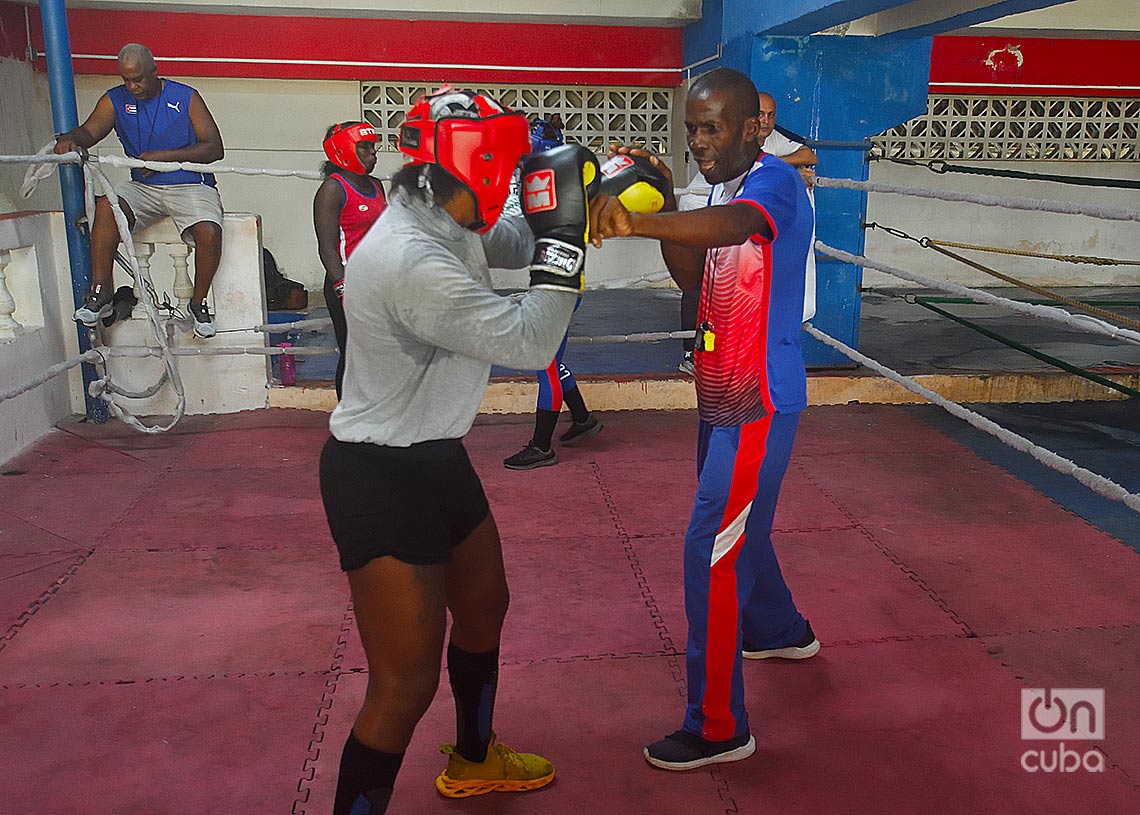
Then, the first Cuban championship would be for December, based in Sancti Spíritus, in which both the girls of the national team and those who train today in their respective provinces will participate. The new pre-selection will emerge from this tournament, the basis for facing the main competitions of 2024, among them the World Championship and the Olympic Games, undoubtedly two superior challenges.
In a future work we will return to the subject, to learn first-hand the stories and evaluations of Noriega, one of the men determined to achieve new successes and advance Cuban women’s boxing.
Meanwhile, the women boxers remain focused under his guidance, that of Santiago Suárez and that of the rest of the coaches, with the determination to continue overcoming obstacles and misunderstandings along with their rivals in the ring.

